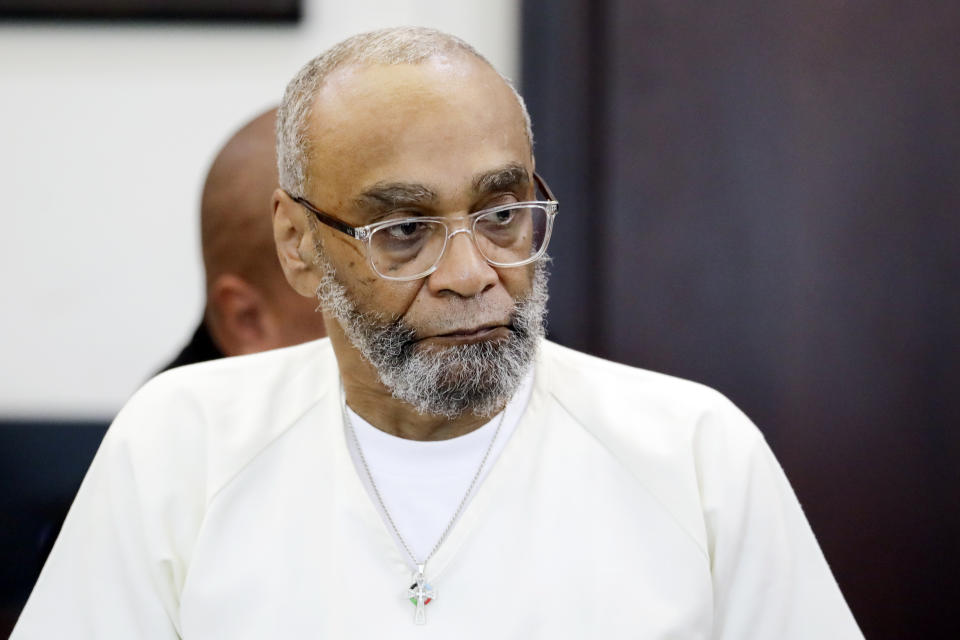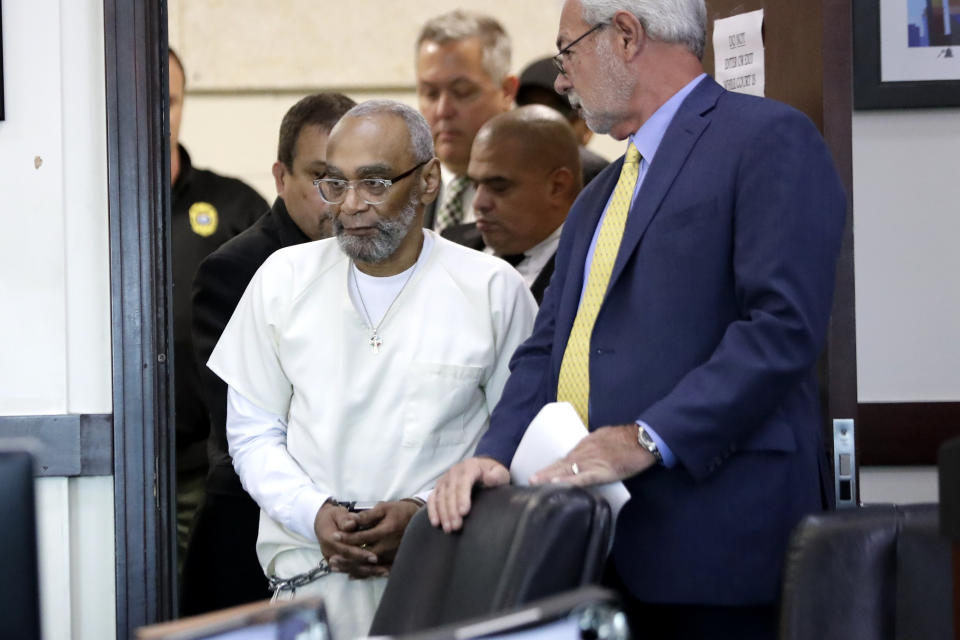Condemned inmate to learn whether sentence will be reduced
NASHVILLE, Tenn. (AP) — A Tennessee inmate who faces execution in April signed an agreement Wednesday that could reduce his sentence to life in prison, if the judge approves it.
The agreement comes after Abu-Ali Abdur'Rahman (ah-BOO'-ah-LEE') (AHB'-dur-RAK'-mahn) filed a petition to reopen his case. Abdur'Rahman, who is black, argued the prosecutor deliberately eliminated black potential jurors from the jury pool, violating his rights under the U.S. and Tennessee constitutions.
Nashville Criminal Court Judge Monte Watkins said he will make a decision by Thursday morning.
At a Wednesday hearing, Abdur'Rahman's attorney introduced a 2015 letter from Nashville's current district attorney general, Glenn Funk, about John Zimmerman, who prosecuted Abdur'Rahman's case but now works in another district.
Funk's letter to the Tennessee District Attorneys General Conference described Zimmerman's comments during a continuing education panel on jury selection where he offered "blatant advice to use race in jury selection." His comments included seeking black jurors for a case where the defendants were Hispanic because "'all blacks hate Mexicans.'"
In Abdur'Rahman's case, attorney Brad MacLean said notes taken by Zimmerman and his fellow prosecutor during jury selection show that the reasons they gave for striking black jurors were untruthful. They told the judge one black juror, a college educated preacher, appeared uneducated and uncommunicative, for example.
Meanwhile, white jurors who truly were uneducated were allowed to serve on the jury.
MacLean said Wednesday that the discrimination violated Abdur'Rahman's right to a fair trial, but it also violated the rights of the African Americans in the jury pool to exercise their "sacred privilege" to serve on a jury.
Speaking after MacLean, Funk acknowledged the gruesome nature of the crime Abdur'Rahman was convicted of committing.
Abdur'Rahman was on parole for another homicide when police said he killed Patrick Daniels and critically injured Norma Jean Norman in 1986. The couple were bound with duct tape and stabbed repeatedly with a butcher knife at Norman's home while her young daughters were in another room.
Funk said he had spoken to Norman, who has forgiven Abdur'Rahman but does not want him released from prison. Without specifically addressing the accusations against Zimmerman, Funk said a prosecutor's job is to pursue justice with honesty and fairness.
"Overt racial bias has no place in the justice system," he said.
He then produced an agreement that would convert Abdur'Rahman's sentence to a life sentence. It would be served consecutively with two other life sentences, so there would be no possibility he would leave prison.
In return, Funk said, Abdur'Rahman has agreed to give up any further legal challenges.
Funk, Abdur'Rahman, and MacLean signed the agreement in court, and Judge Watkins said he would review it before making a decision.





